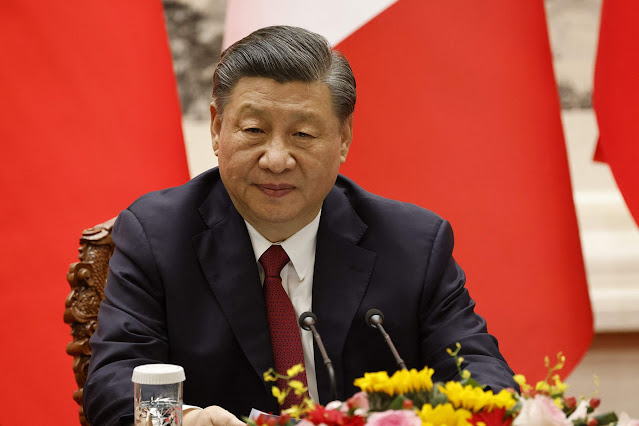Xi Jinping Urges China's National Security Chiefs to Prepare for "Worst Case" Scenarios.
Xi Jinping Urges China's National Security Chiefs to Prepare for "Worst Case" Scenarios.
China Intensifies Efforts to Counter Internal and External Threats amid Heightened Complexity.
Chinese leader Xi Jinping has emphasized the need for his top national security officials to be prepared for "worst case" scenarios and navigate through challenging times as the ruling Communist Party strengthens its efforts to counter perceived threats. With the national security landscape becoming increasingly complex, Xi stressed the importance of adopting a bottom-line approach and preparing for potential hardships. These instructions come as China confronts various challenges, including a struggling economy and what it perceives as an increasingly hostile international environment.
In response to what he described as a "complex and grave" situation, Xi highlighted the necessity of accelerating the modernization of China's national security system and capabilities. The focus should be on enhancing their effectiveness in real combat and practical use. Additionally, Xi called for the construction of a national security risk monitoring and early warning system, improvements in national security education, and the enhancement of data and artificial intelligence security management.
Experts assert that Xi has made national security a central pillar of China's governance since assuming power a decade ago. He has expanded the concept to encompass politics, the economy, defense, culture, ecology, cyberspace, and even outer space, big data, and artificial intelligence. Under the framework of "comprehensive national security," China has introduced a range of legislation to safeguard itself against perceived threats. These laws cover counter-terrorism, counter-espionage, cybersecurity, foreign non-government organizations, national intelligence, and data security.
Recently, China broadened the scope of its already comprehensive counter-espionage law, extending it to include any materials or items related to national security and interests. This focus on national security is exemplified by the imposition of a sweeping national security law in Hong Kong, aimed at suppressing dissent following large-scale pro-democracy protests. Furthermore, the perception that security has surpassed economic growth as Beijing's top priority has been reinforced by recent raids on foreign companies operating in China.
These developments, including the detainment of foreign nationals on espionage suspicions, have raised concerns among international businesses, at a time when the Chinese government seeks to attract foreign investment to stimulate its slowing economy. Xi emphasized the importance of proactively shaping a secure external environment to ensure the security of China's "opening up" and promote the deep integration of development and security.
In conclusion, Xi Jinping's call for preparing for worst-case scenarios and navigating stormy seas reflects the heightened complexity of China's national security landscape. By focusing on the modernization of national security systems and capabilities, and enhancing risk monitoring and early warning mechanisms, China aims to safeguard its interests in an ever-evolving global context.




Comments
Post a Comment